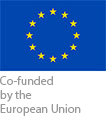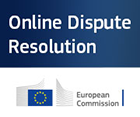Dropshipping
A new hype on the internet, but not without danger
Dishonest online sellers, they come in all shapes and forms. In this article, we take a closer look at a particular sales model for online entrepreneurs, which is also becoming more and more popular with internet fraudsters: dropshipping.
ECC Belgium will explain:
- … what dropshipping is.
- … what the legal rules for dropshipping are.
- … how you can recognize dropshippers.
- … what the associated risks are.
- … what you should be mindful of.
- … what to do if you’ve been defrauded.
What is dropshipping?
Dropshipping works as follows: you place your order at an online store, which then forwards your order to a foreign supplier who sends the goods straight to you. What sets this sales model apart from others is the fact that the web shop does not have its own stock of goods, but merely acts as a storefront. The supplier oversees the logistical aspects of the transaction, and will prepare, pack and deliver the goods to you. Despite that, the webs shop bears the sole legal responsibility for the delivery, your right of withdrawal and the customer service.
Good to know: Often these dropshipping sites are created or hosted by platforms that are established outside the EU. For example: Shopify.
What are the legal rules for dropshipping?
Dropshipping is not fraudulent by definition. Dropshipping can be perfectly legal if the seller abides by all the legal requirements for distance sales. Sadly, many of these rules are frequently broken. For instance, many dropshippers do not provide adequate contact details on their website.
Dropshippers often advertise on social media networks such as Facebook or Instagram, with the use of professional-looking videos. Some dropshippers even enlist the help of influencers to promote their products. These products are often of an inferior quality or counterfeit, and are often sold at excessively high – or deceptively low – prices. Sometimes these products are advertised as being manufactured in Europe (for example with a “Made in Belgium” label), even though they are actually made in China. These trade practices are unfair and/or misleading.
These websites are often not based in Europa, even though their url-address might end in a European extension, like “.be”, “.nl” or “.de”. That makes it very hard to enforce your European consumer rights against these companies.
Be careful: Your options for legal recourse against sellers based outside the EU are limited, meaning that these practices often go unanswered.
How do you recognize dropshippers?
Dropshippers are hard to detect, because you do not have any access to the system that links the dropshipper to their supplier.
How do you avoid a non-delivery or other issues? Check the identity of your seller and other essential information on their website before placing an order, with the help of our Web Shop Check.
Ready to channel your inner Sherlock Holmes? These tips will help you identify dropshippers:
- They often advertise promotions such as 1+1 free.
- The top of their websites often features a brightly coloured banner offering special promotions or ultrafast delivery times.
- Dropshipping websites often don’t list any contact information.
- Most of these websites use the same terms and conditions, with a choice of law that does not reflect the actual location of the company. The terms and conditions might choose Dutch or French law as the applicable law of the contract, even though the company is not established in those countries.
- They will often promote their products on social media, with videos on Facebook or Instagram.
What are the associated risks?
Buying from dropshippers can be risky:
- They might fail to deliver your products.
- They might deliver products of an inferior quality, or products that do not match the sales description.
- They might refuse to acknowledge your right of withdrawal and deny your request for a refund.
- Long delivery times. Many of these products are sent straight from the factory in China.
- High return shipping costs when you use your right of withdrawal.
- Difficulties when you make a claim under the legal guarantee, for instance when you receive the wrong product, or your product is broken.
What should you be mindful of?
Under the motto “prevention is better than the cure”, we will give you some tips to avoid problems with dropshipping. You will find them here.
Good to know: If you are ever in doubt, just do the Web Shop Check. With this tool, you can ensure that your online purchases across Europe will be safe.
Were you defrauded by a dropshipper?
If you are a victim of dropshipping, chances are you will never see your money again. Fraudulent sellers will of course refuse to refund you. If you paid via credit card you can contest the transaction via www.mijnkaart.be. Maybe your card issuer will pay you back.
You can file a complaint against unreliable dropshippers with the Economic Inspection. They can take measures to end these illegal practices.
If the seller is based in another EU country and you believe an amicable solution might be possible, then you can send your case to us. We will look at it and see if there is room for mediation.


